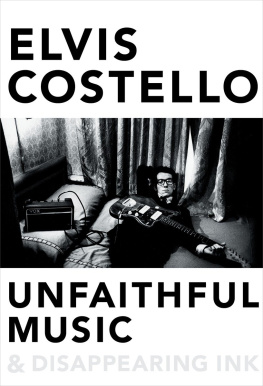Harry Specht - Unfaithful Angels
Here you can read online Harry Specht - Unfaithful Angels full text of the book (entire story) in english for free. Download pdf and epub, get meaning, cover and reviews about this ebook. year: 2007, publisher: The Free Press, genre: Politics. Description of the work, (preface) as well as reviews are available. Best literature library LitArk.com created for fans of good reading and offers a wide selection of genres:
Romance novel
Science fiction
Adventure
Detective
Science
History
Home and family
Prose
Art
Politics
Computer
Non-fiction
Religion
Business
Children
Humor
Choose a favorite category and find really read worthwhile books. Enjoy immersion in the world of imagination, feel the emotions of the characters or learn something new for yourself, make an fascinating discovery.

- Book:Unfaithful Angels
- Author:
- Publisher:The Free Press
- Genre:
- Year:2007
- Rating:5 / 5
- Favourites:Add to favourites
- Your mark:
- 100
- 1
- 2
- 3
- 4
- 5
Unfaithful Angels: summary, description and annotation
We offer to read an annotation, description, summary or preface (depends on what the author of the book "Unfaithful Angels" wrote himself). If you haven't found the necessary information about the book — write in the comments, we will try to find it.
Unfaithful Angels — read online for free the complete book (whole text) full work
Below is the text of the book, divided by pages. System saving the place of the last page read, allows you to conveniently read the book "Unfaithful Angels" online for free, without having to search again every time where you left off. Put a bookmark, and you can go to the page where you finished reading at any time.
Font size:
Interval:
Bookmark:
UNFAITHFUL ANGELS

HOW SOCIAL WORK HAS ABANDONED ITS MISSION
Harry Specht
Mark E. Courtney

THE FREE PRESS
Copyright 1994 by Harry Specht and Mark E. Courtney
All rights reserved. No part of this book may be reproduced or transmitted in
any form or by any means, electronic or mechanical, including photocopying,
recording, or by any information storage and retrieval system, without permission
in writing from the Publisher.
The Free Press
A Division of Simon & Schuster Inc.
1230 Avenue of the Americas
New York, N.Y. 10020
www.SimonandSchuster.com
First Free Press Paperback Edition 1995
Printed in the United States of America
printing number
9 10
Library of Congress Cataloging-in-Publication Data
Specht, Harry.
Unfaithful angels: how social work has abandoned its mission/ Harry
Specht and Mark E. Courtney.
p. cm.
ISBN-13: 978-0-02-874086-7
ISBN-10: 0-02-874086-6
eISBN 978-1-439-10871-0
1. Social serviceUnited States.
2. PsychotherapySocial aspectsUnited States.
3. Social workersUnited States.
4. PsychotherapistsUnited States.
I. Courtney, Mark E.
II. Title.
HV91.S6292 1994
361.973dc20 93-23934
CIP
The authors acknowledge, with thanks, permission to take material from the
following papers: Mark Courtney, Psychiatric Social Workers and the Early
Days of Private Practice, Social Service Review 66:2 (June 1992); Harry Specht,
Social Work and the Popular Psychotherapies, Social Service Review 64:3
(September 1990).
To the pioneers
Jane Addams and Mary Richmond
Those sweetly smiling angels with pensive looks, innocent faces, and cash-boxes for hearts
Honor de Balzac, Cousin Bette, 1846
For we must consider that we shall be a City upon a hill. The eyes of all people are upon us, so that if we shall deal falsely with our God in this work we have undertaken, and so cause Him to withdraw His present help from us, we shall be made a story and a byword to the world.
John Winthrop, A Model of Christian Charity, a sermon delivered on board the Arabella, 1630


I have been actively engaged in social work for close to 50 years, a span that holds almost half the history of the profession in the United States. In those years social work has changed continuously in response to changes in American society. For example, in the 1930s there was an abatement of the previous decades psychiatric deluge, as social workers turned from studying Freud to attend to the social devastation brought about by the Great Depression. The radicalism of the 1930s gave way in the subsequent decade to a patriotic fervor supporting total mobilization of resources to fight World War II. During the McCarthy era of the 1950s the profession reacted in much the same way as other parts of society: generally, social work became more conservative. This was manifest in a preoccupation with professionalization, the refinement of clinical techniques, and the use of more sophisticated analytic methods.
Nor were social workers found wanting in the civil rights and anti-war movements of the 1960s and 1970s. Were relevant too! said many members of the profession. Community organization, advocacy, and anti-poverty programs became the order of the day. Overwhelmed, the psychiatric social workers who had reigned professionally supreme for many years beat an ignominious retreat; however, though down, they were not out. In the later 1970s they reappeared with a new name, clinical social work, to ride the crest of a new social work wave: now social workers went into private practice in drovesto do psychotherapy. They were doing all shades and varieties of psychotherapy, and they were doing it with a new clientele.
When I first came to know social workers half a century ago, they had a mission that was, to me, appealing and significant: to help poor people, to improve community life, and to solve difficult social problems. But times have changed. Today, a significant proportion of social workers are practicing psychotherapy, and doing so privately, with a primarily middle-class, professional, Caucasian clientele in the 20- to 40-year age group. The poor have not gone away; there are more of them than at any time in recent memory. Community life has deteriorated, and our social problems have gotten more difficult and complex. Certainly many professional social workers are still committed to the public social services, to helping poor people, and dealing with social problems like homelessness and child neglect, but a large part of the profession is adrift in the psychotherapeutic seas.
Many young people continue to be drawn to our profession by their passion for social justice and a desire to help those who are in most need, such as AIDS victims and the frail aged. These are the kinds of practitioners and students the profession needs if it is to realize its original mission. Increasingly, though, it becomes more difficult to sustain and nourish a passion for and commitment to that kind of mission because the thinking of too many social workerslike the thinking of too many other Americansis dominated by a psychotherapeutic ethos. It is our intention in this book to stir debate about social works purpose in American life and, it is hoped, to persuade Americans to chart a new course for social workto give the profession a 21st-century means of realizing its significant social mission.
Mark Courtney came to this project via a route different from mine. During the course of his training as a clinical psychologist, he worked with abused and neglected children in residential carea traditional social work concern. While he found his clinical skills of some use in helping these youths, he became increasingly aware of the wide range of social problems they and their families faced which were not amenable to psychotherapeutic intervention. It seemed to him that a broader focus was called for. Eventually he came to believe that social work was a place where he could articulate and refine his developing ideas about family and childrens services. When he began to study the current scene in social work in more depth, however, he found that his vision of social works raison dtre appeared to be shared by fewer and fewer social workers. In fact, it seemed that most of his new colleagues had more in common with his old colleaguespsychotherapiststhan they did with his ideal social worker. My growing concern over the state of the profession to which I have dedicated myself, together with Marks realization that he has joined the profession at a time when the social in social work may be rendered meaningless, led to our collaboration on this book.
A number of people provided us with support and counsel as we developed our ideas. Because I am Mark Courtneys senior by many years, I have many more people to thank than he. Some of my good friends who have been especially encouraging are Neil and Barbara Gilbert, Carol and Berkeley Johnson, and Ed and Harriet Nathan. Neil Gilbert, Ed Nathan, Henry Miller, and Robert Specht, my brother, read the manuscript and gave many helpful suggestions. Other colleagues who advised us on various issues are William Smelser, Bart Grossman, and William McKinley Runyan. Needless to say, not all of the people mentioned agree with us, and none are responsible for what is written here.
Next pageFont size:
Interval:
Bookmark:
Similar books «Unfaithful Angels»
Look at similar books to Unfaithful Angels. We have selected literature similar in name and meaning in the hope of providing readers with more options to find new, interesting, not yet read works.
Discussion, reviews of the book Unfaithful Angels and just readers' own opinions. Leave your comments, write what you think about the work, its meaning or the main characters. Specify what exactly you liked and what you didn't like, and why you think so.









